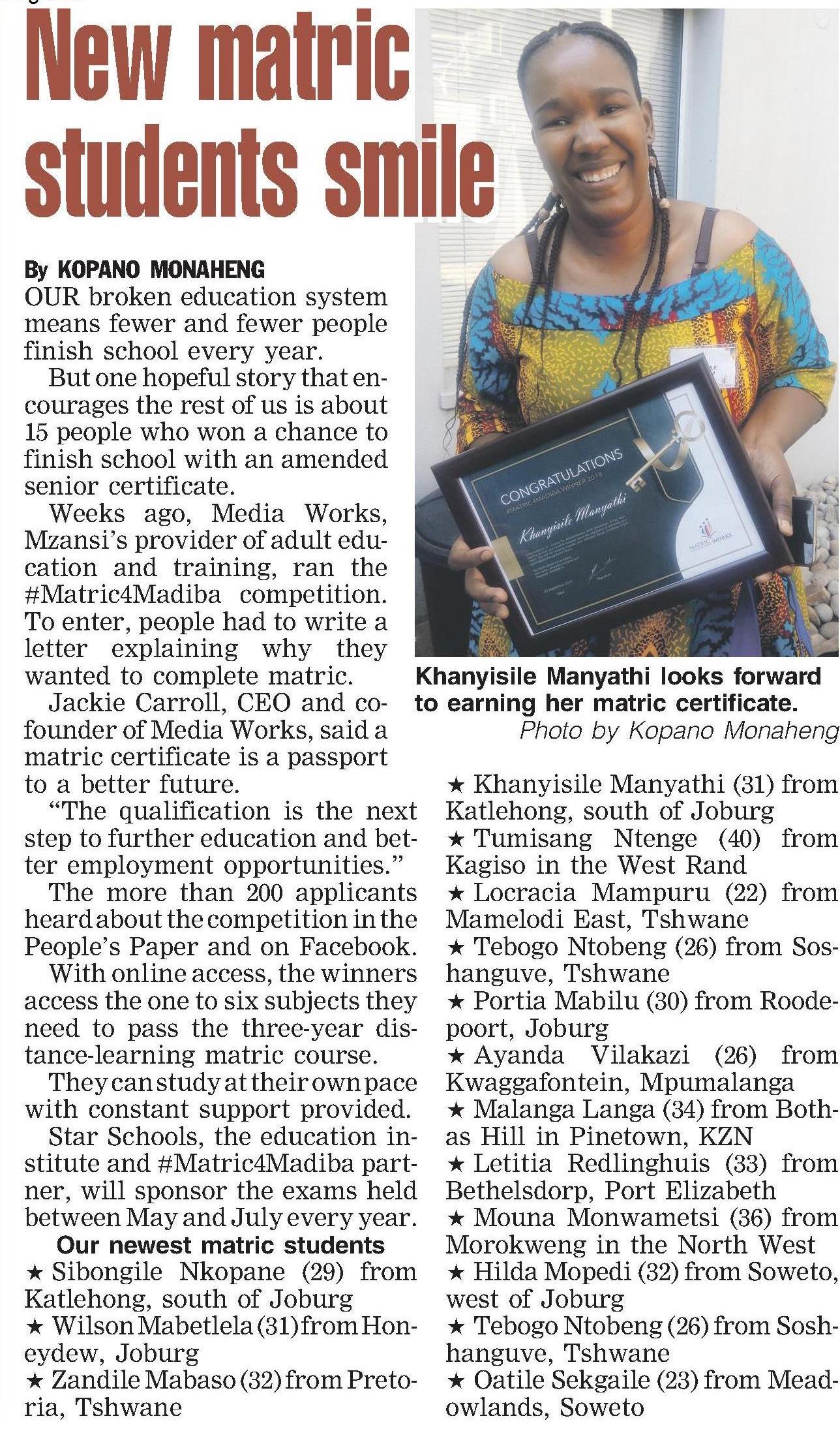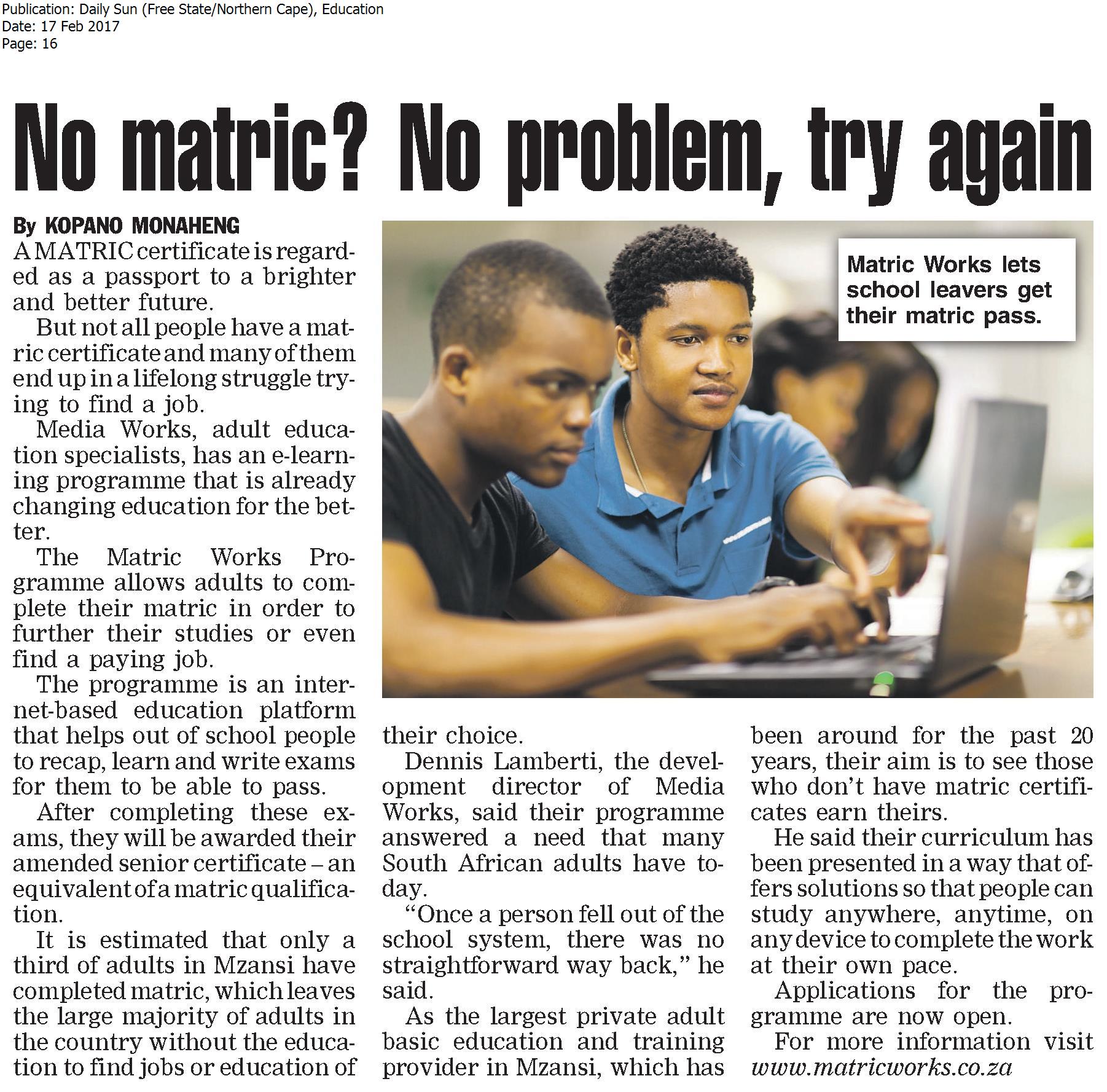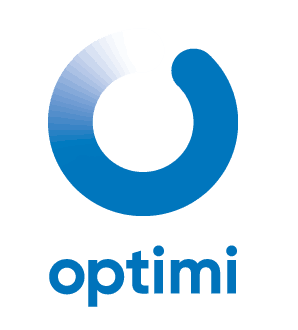
Articles
#Matric4Madiba winners featured in Daily Sun
On Tuesday 25 September 2018, Media Works was proud to announce the winners of its #Matric4Madiba competition which gave 15 South Africans the opportunity to complete their Amended Senior Certificate (ASC) for free.
The winners comprise of 15 adults whose finances or circumstances prevented them from completing their secondary education. The Daily Sun newspaper covered the story in their education segment on Thursday, October 4 2018.
Well done to all the winners!


Technology Tackles the Cost of Training
Mobile innovation reduces the cost of workplace training
From improving productivity and upping staff morale, to attracting top talent and retaining employees for longer, thebenefits of employee education are endless. The costs involved, however, can be prohibitive.
Dennis Lamberti, Development Director of Media Works, explores how mobile learning can reduce the cost of trainingsubstantially, making workforce education far more accessible to businesses in South Africa.
Traditionally, workplace training has taken the form of lecture-style group learning in a classroom environment. In this scenario, a group of employees are led through the training material by a facilitator, and books and other printed materials are given to each learner to refer to and study from.
With this model, the cost of facilitation and course material are your biggest hard costs, and can be incredibly prohibitive depending on the length of training and how many people need to do the course.
However, what is even more costly to your business, is the amount of work hours that are lost during the training. The classroom-style approach means regulated group training and a loss of productivity during office work hours, which can slow down operations at inopportune times.
This is where e-learning comes in; it takes employee education beyond the classroom and onto the mobile device, where learners can tap into their training anytime, any where and then apply their learnings to the work environment.
Beyond the classroom
When you think about online learning and mobile education, you might be a bit skeptical about whether this way of learning can take the place of teacher-classroom training and truly be effective to your staff. However, the facts prove otherwise.
Online learning has developed in such a way that rich, diverse and multi-faceted media components can be created to deliver the curriculum content in well-structured, logical ways that enhances learning.
It has, in fact, been proven to be far more effective than the traditional approach.

Why digital?
Through digital learning, particularly on a mobile device, you can learn in your own space, anytime and anywhere. Learning can happen when it is convenient to the learner, and the content can be digested at their own pace.
When training is delivered like this, there are no work distractions, which is a common experience by employees, whose work priorities and deadlines often trump the training that is offered.
The information can also be conveyed in bite-sized chunks – a style called single-concept-learning – that allows the learner to snack on nuggets of relevant information, rather than grappling with reams of text and ideas at one time. This approach improves information retention.
Without being in a group, learners also have the opportunity to digest the content – whether it’s course notes, videos or infographics – at their own time, and can repeat modules, in order to improve understanding; something that classroom based learning does not cater for.
As valuable as e-learning is to the individual, it is also hugely beneficial to the employer, as it cuts down the cost of training and saves time, while providing a more worthwhile and effective teaching model.
Mobilising education
Mobile phone penetration is now at 67% of Africa’s population, which means that there are about 1.13 billion people on the continent with mobile phones.
Adding to this, the majority of people in Africa accessing the Internet, are doing so via their mobile phones, so the situation is ripe for mobile education to flourish.
The cost of devices, such as a 10-inch tablet, is under R2000 and data access costs are reducing across Africa, making mobile connectivity even more accessible.
Through mobile technology, we are presented with an opportunity to ‘leapfrog’ traditional structures by cutting out the learning centres, or office-based training, and delivering training to the learner anywhere at any time.
A well-developed learning programme will be able to run on any device, including mobile devices.
By downloading the course material onto smartphones or tablets, employees can access their notes and assignments at a quiet time during the workday, or even on a train, taxi, flight, or while waiting for an appointment.
If the learner feels more comfortable taking their time with the material and engaging with it at home, there is the scope for this too. The mobile device becomes the facilitator. Once purchased, the device can be used to access any number of learning interventions.
Offline ability
While millions of Africans have access to smart phones and tablets, they are often only connected to the Internet when connected to a WiFi hotspot, as opposed to utilising paid-for data.
To overcome this, mobile learning has offline capabilities, meaning that learners can download the material when they are online to access it when they are offline. This makes the learning material accessible, whether the learner is connected to the Internet or not.
As tech hubs, which were initiated in Kenya and South Africa, continue to pop up across Africa, even those living in remote geographic areas can make use of access to the internet via these WiFi zones.
Here, people can download the material onto their device, and engage with the information at home, or on the go, even if they are not connected to the internet.
Self marking for success
The biggest cost of any training intervention is the cost of the facilitator/teacher, and one of the crucial roles that a facilitator performs is the marking of assignments and providing feedback.
Self marking is an essential part of online training, and it needs to be done in the right way to reinforce the learning process and to enhance long-term memory by answering questions and working through the outcomes.
The way that this works, is that questions and assignments will be given to the learner as part of their course material. In their own time, they will complete the answers in their worksheets (these can be downloaded and printed).
The learners will mark their worksheet exercises against a model answer sheet. For this to work, the answer sheet needs to be comprehensive; providing the answer, as well as the thought process behind how the answer was derived.
This style of learning puts the control in the learners’ hands. They could cheat and take shortcuts when writing down their answers, but this is of no benefit to them, as they will not be gaining the relevant knowledge and skills necessary to complete the course.
Through this approach, learners are also less restricted in their answers and can express themselves better. By using descriptive answer sheets, the learner can see exactly where they went wrong, which allows for greater reflection and retention of information.
Self marking, when done properly, will prepare learners for an independent summative assessment. The more effort an employee puts into understanding the course material and completing the self-marking exercise, the more they will get out of their studies and the better they will do in their assessments.
Mobile learning is beneficial to both employee and employer. It is far less of a sacrifice, of time and money than the traditional approach, and it is far more engaging, relevant and effective.
About Dennis Lamberti
Dennis Lamberti is the Development Director and co-founder of Media Works, the largest Private Adult Basic Education and Training provider in South Africa. Media Works has been operating for 20 years and the various programmes on offer are currently used as a significant instructional resource by over 100 000 learners across Southern Africa.
